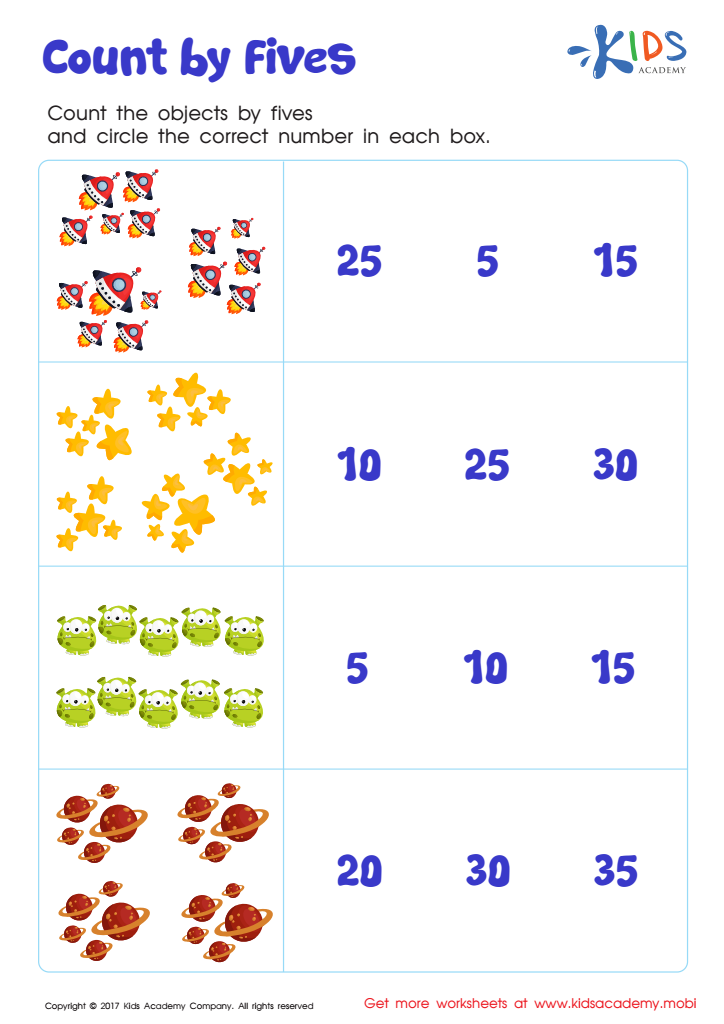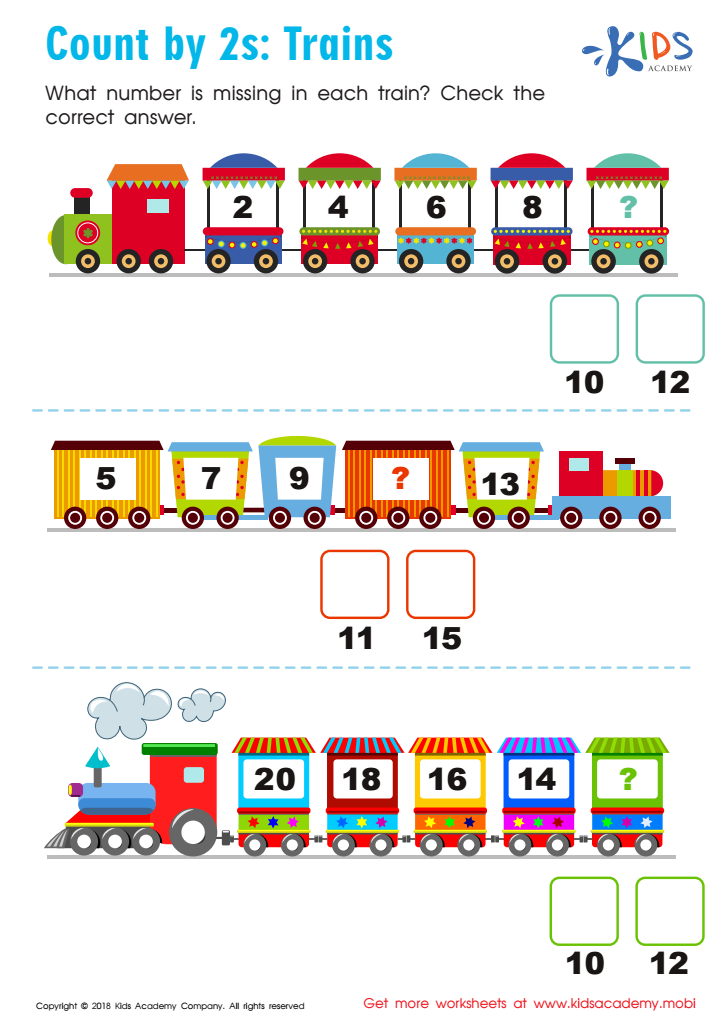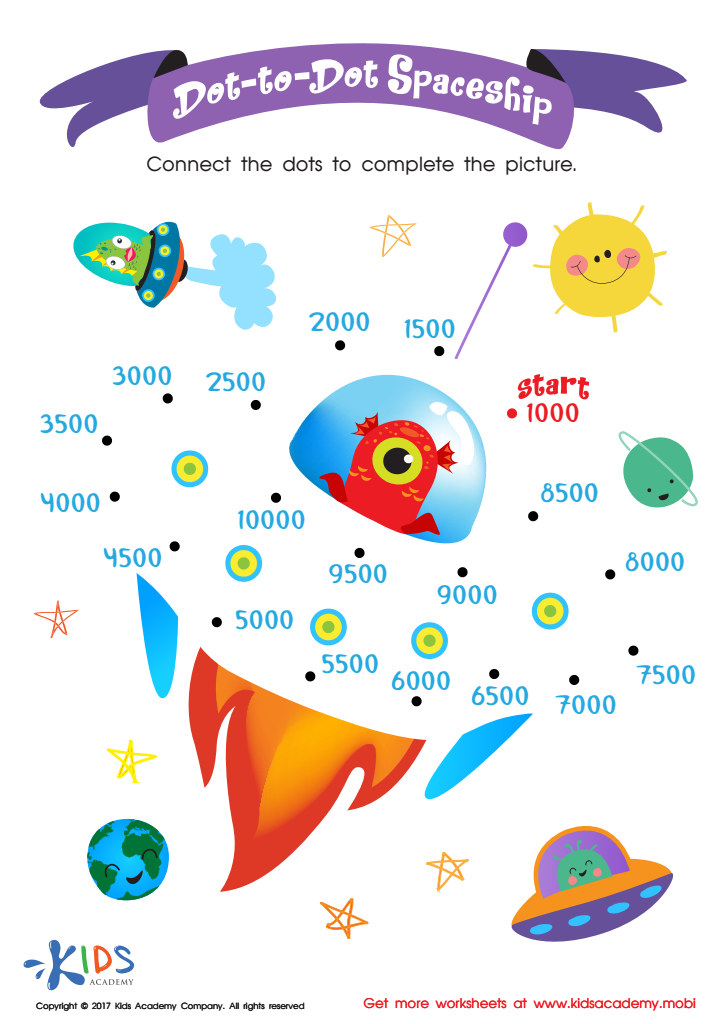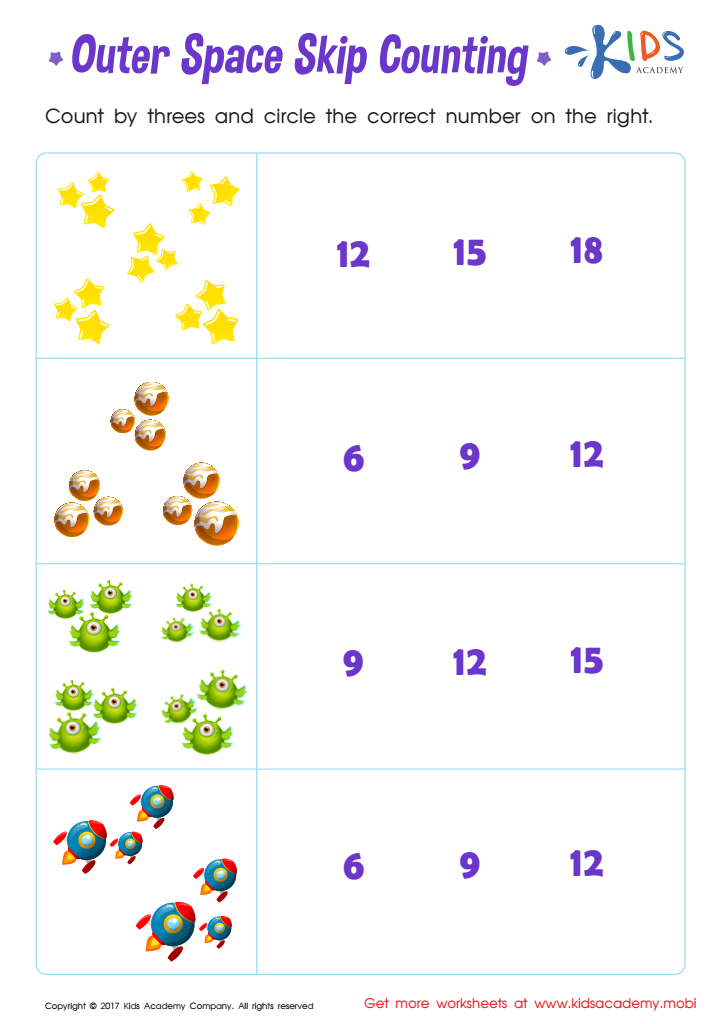Number Sequencing Counting Worksheets for Ages 4-9
5 filtered results
-
From - To
Unlock your child's mathematical potential with our engaging Number Sequencing Counting Worksheets, designed specifically for children aged 4-9! These worksheets provide an excellent resource to help youngsters develop foundational counting skills and understand number patterns. Tailored for different skill levels, they incorporate fun activities that encourage critical thinking and boost confidence. Whether your child is just beginning to recognize numbers or is ready to tackle more complex sequences, our worksheets are perfect for at-home learning or classroom settings. Enhance your child's learning experience while making math enjoyable—explore our collection today and watch their skills flourish!


Skip Counting by 5s: Space Math Printable


Count by 2's: Trains Worksheet


Dot to Dot Worksheet for 3rd Grade


Frog Countdown Worksheet


Skip Counting by 3s: Outer Space Skip Counting Printable
Number sequencing and counting form the foundation of mathematical understanding for children aged 4-9. Early exposure to these concepts significantly enhances cognitive development and fosters critical thinking skills. For parents and teachers, nurturing counting and sequencing abilities is crucial because it lays the groundwork for more advanced math skills, including addition, subtraction, and problem-solving.
Moreover, number sequencing helps children recognize patterns, an essential skill not only in math but also in everyday life. When children can count and sequence numbers, they develop a stronger sense of number sense, which informs their understanding of quantity, size, and order. This foundational knowledge supports their confidence and readiness to tackle more complex math topics in later years.
Beyond academics, counting games and number sequencing activities promote social skills, cooperation, and communication as children typically engage in these activities with peers or caregivers. Such interactions also strengthen relationships as they work together to achieve learning goals. Additionally, active participation in counting and sequencing prepares children for STEM fields, ensuring they are equipped for future academic and career opportunities. Ultimately, fostering these skills enriches children’s cognitive development and prepares them for lifelong learning.
 Assign to My Students
Assign to My Students















